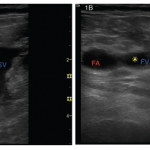We teach medical students, residents and fellows evidence-based medicine to lay the groundwork for rational prescribing and good clinical judgment. But should we stop our rheumatology fellows from interacting with pharmaceutical companies as part of this foundation? It is not surprising that pharmaceutical companies can influence physician prescribing through gifts. At least, it should not…







